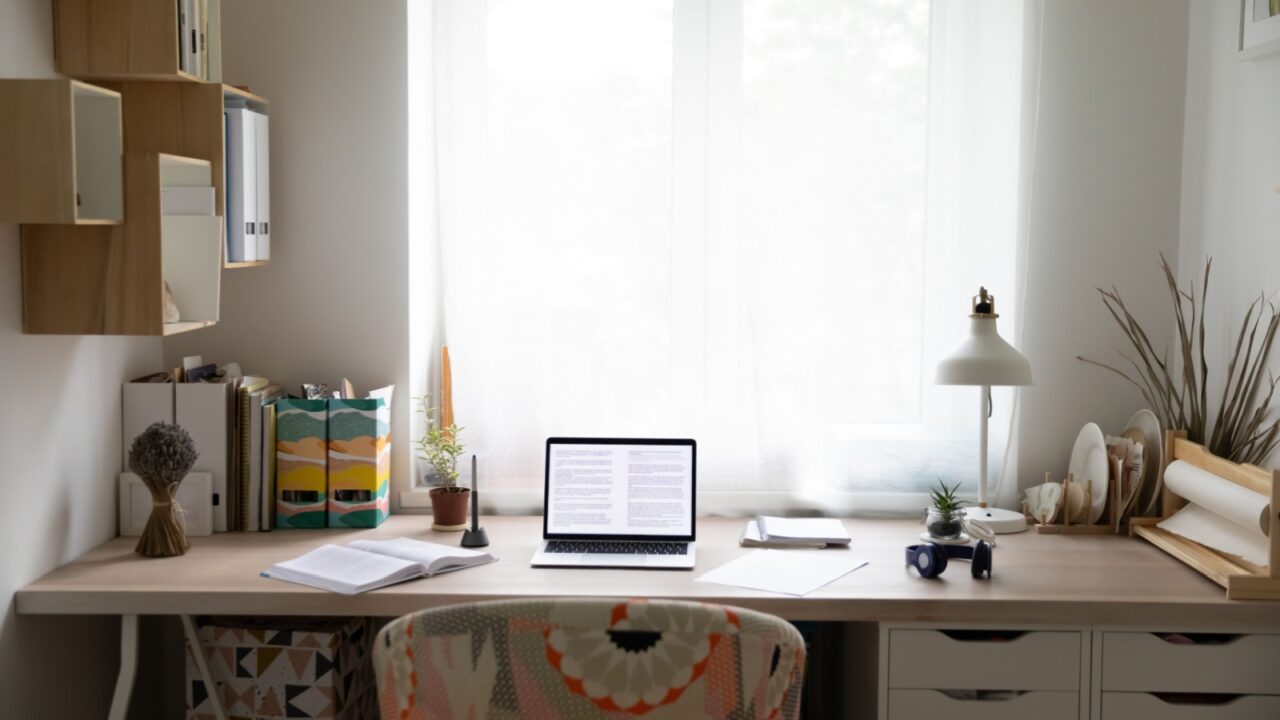
Revamp Your Study
Your study room is packed with untapped potential. Are you ready to unlock it? From clever storage hacks to modern décor ideas, this guide will help you transform your space into a productive, inspiring haven.
If you’re aiming for a sleek, minimalist vibe or a cozy, personalized retreat, we’ll show you how to turn your study room into a stylish space that fuels your focus and creativity.
Let’s take your study space from bland to brilliant with these fresh, functional ideas.
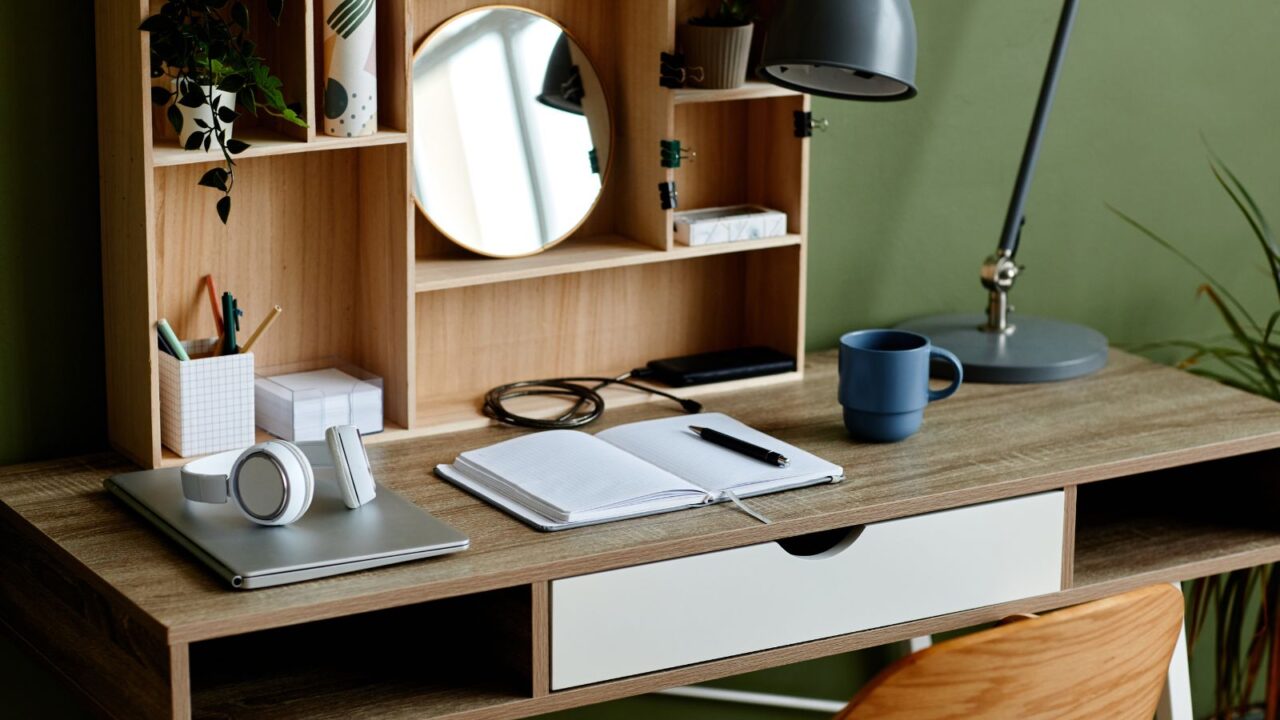
Functional Furniture
Maximize your study room’s potential by choosing furniture that serves more than one purpose. A desk that doubles as a storage unit or a bookshelf that also works as a room divider can save space while adding function.
Multi-functional furniture ensures that every inch of your study room is used effectively, making it easier to maintain an organized, efficient workspace. Plus, this approach adds versatility and flexibility to your room’s design.
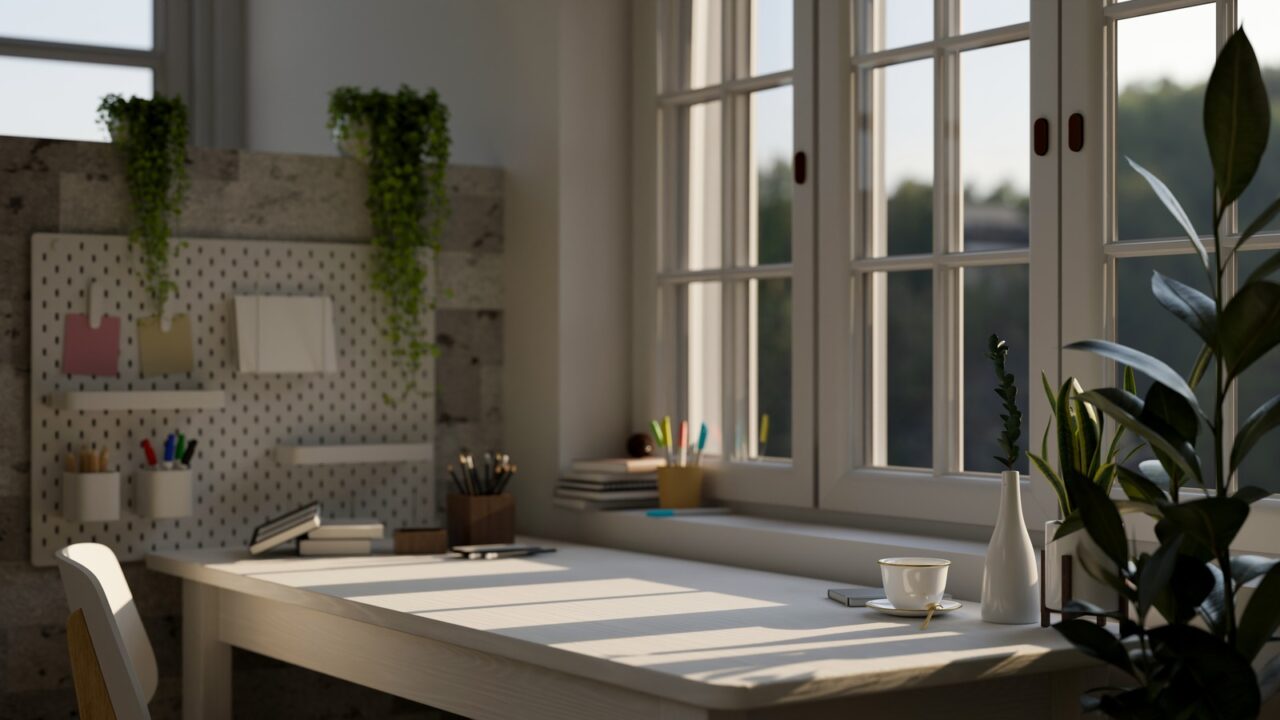
Natural Light
Nothing beats natural light for boosting your mood and focus. Place your desk by a window to soak in that sunlight, reducing eye strain and keeping you energized.
If natural light is scarce, opt for warm LED desk lamps that mimic daylight, keeping the space cozy and productive. Light-colored curtains can filter in just the right amount of brightness.
By strategically placing your study area, you ensure an inviting, well-lit space that’s easy on the eyes and ideal for focused work.
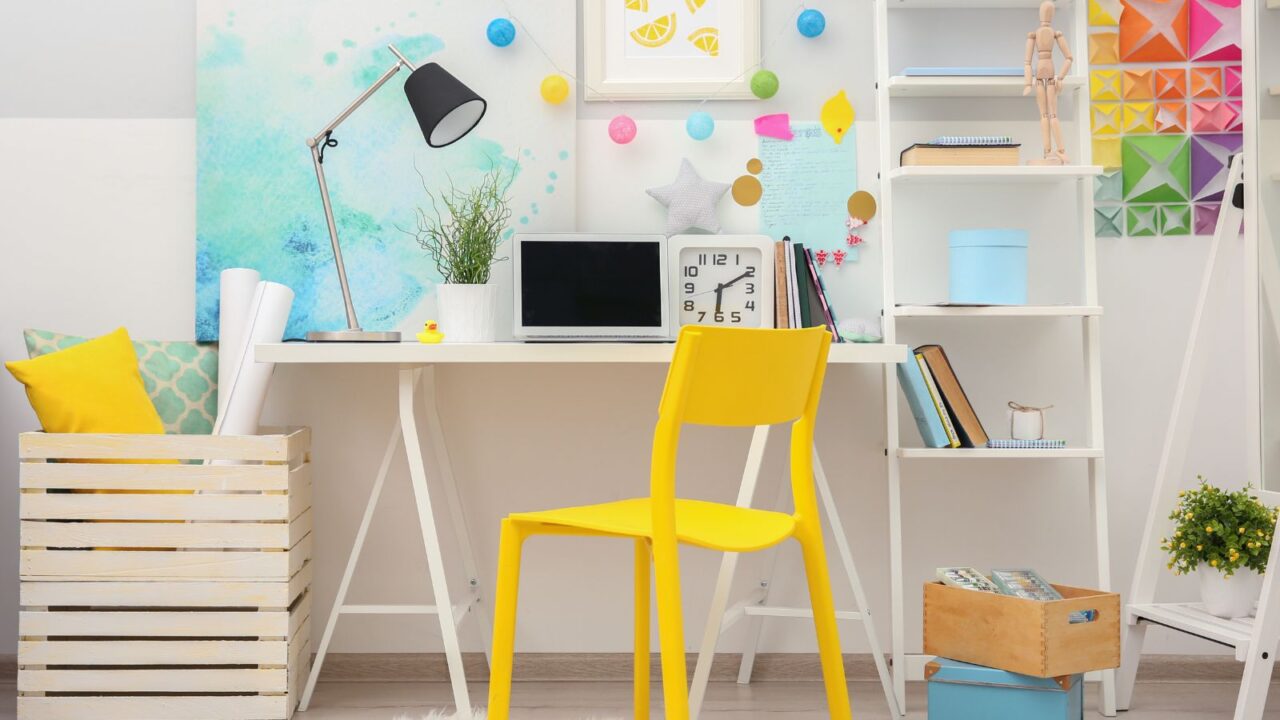
Personalized Touches
Make your study room feel like your own private workspace. Add framed photos, motivational quotes, or pieces of artwork that inspire you. Personalization strengthens your connection to the space and makes it more enjoyable to be in.
You can even set up a vision board with goals to keep your motivation high. Balancing these personal touches with functionality will make your study room feel comfortable without losing focus.
Every time you walk in, it should remind you why you’re there, to get things done.
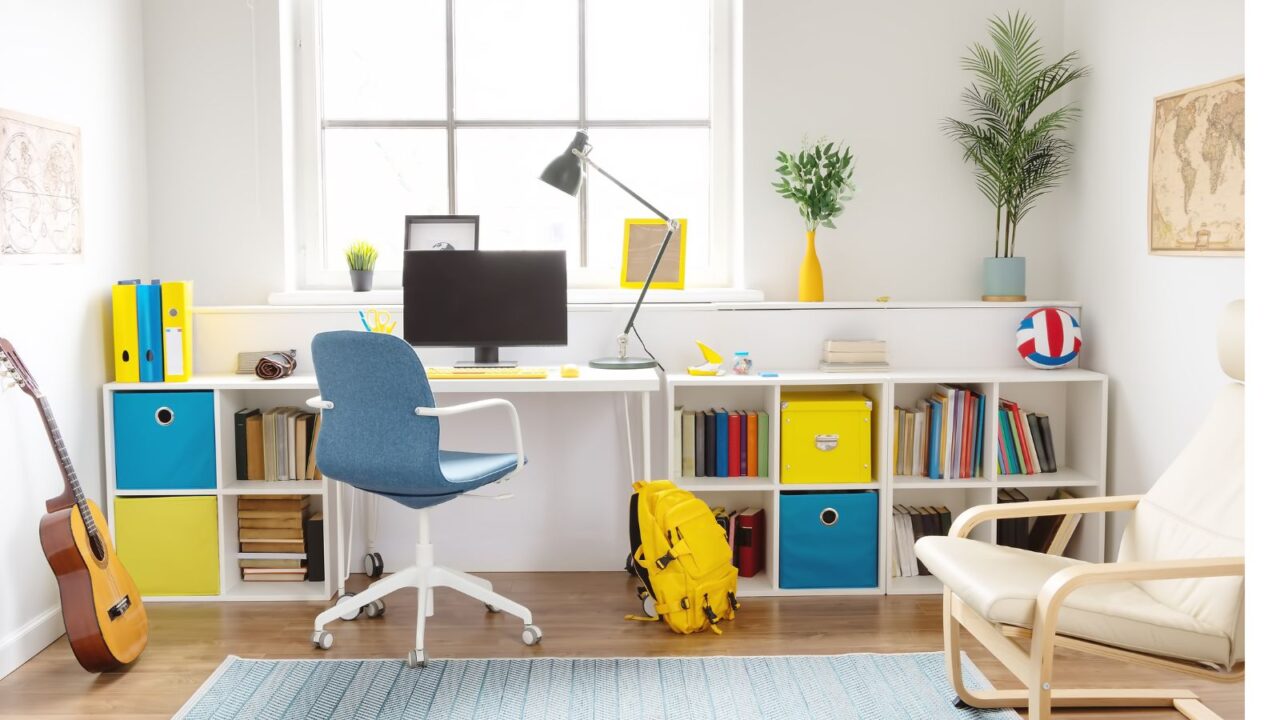
Smart Storage
Storage is the secret to a clean and organized study room.
Floating shelves or cabinets save floor space while offering ample room for books, gadgets, and office supplies. Drawer organizers can keep papers and small items neatly arranged for easy access. For documents you need handy, wall-mounted file holders are a smart choice.
Smart storage solutions simplify your life, ensuring that you can find everything without digging through piles. The more organized your space, the more focused you’ll be.
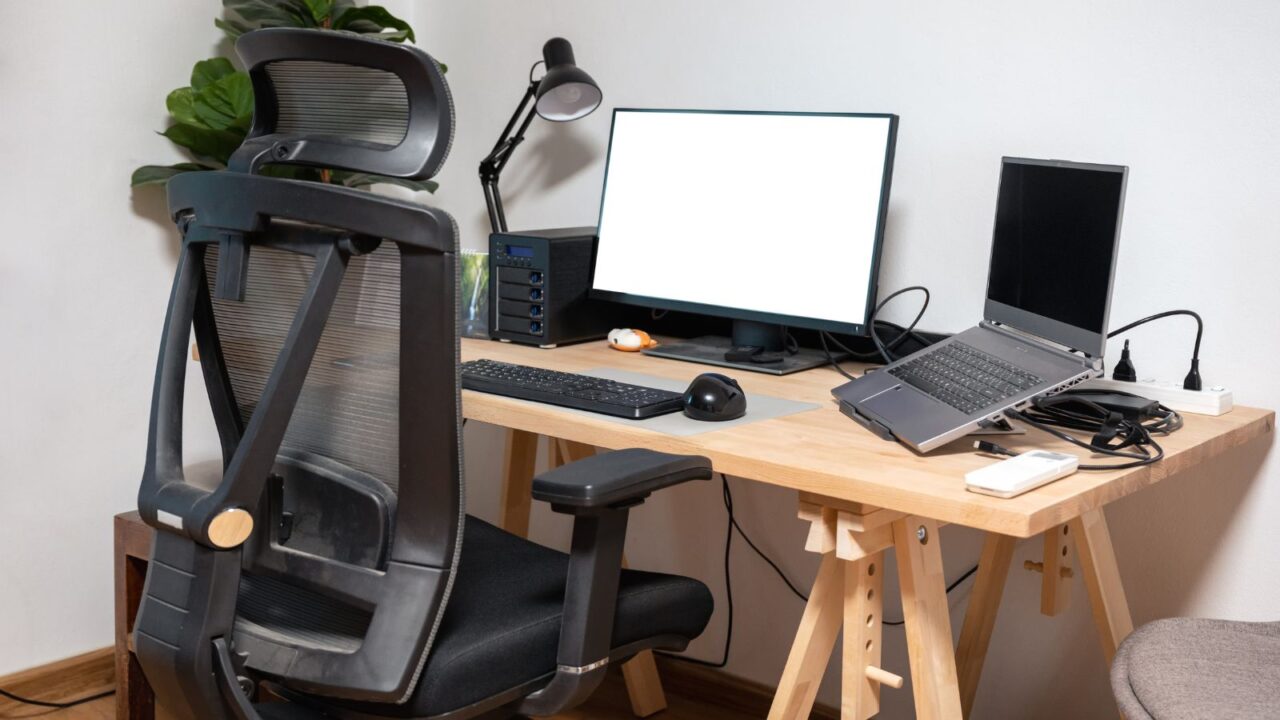
Ergonomics
Ergonomic furniture isn’t just a luxury, it’s essential for prolonged focus and productivity.
Invest in an ergonomic chair and a desk that suits your height to prevent back and neck strain. Using a monitor stand can also reduce strain on your eyes and neck, allowing you to work longer comfortably.
Don’t forget ergonomic accessories like keyboard wrist supports to prevent strain injuries. Prioritizing ergonomics enhances comfort, enabling you to concentrate better on your tasks.
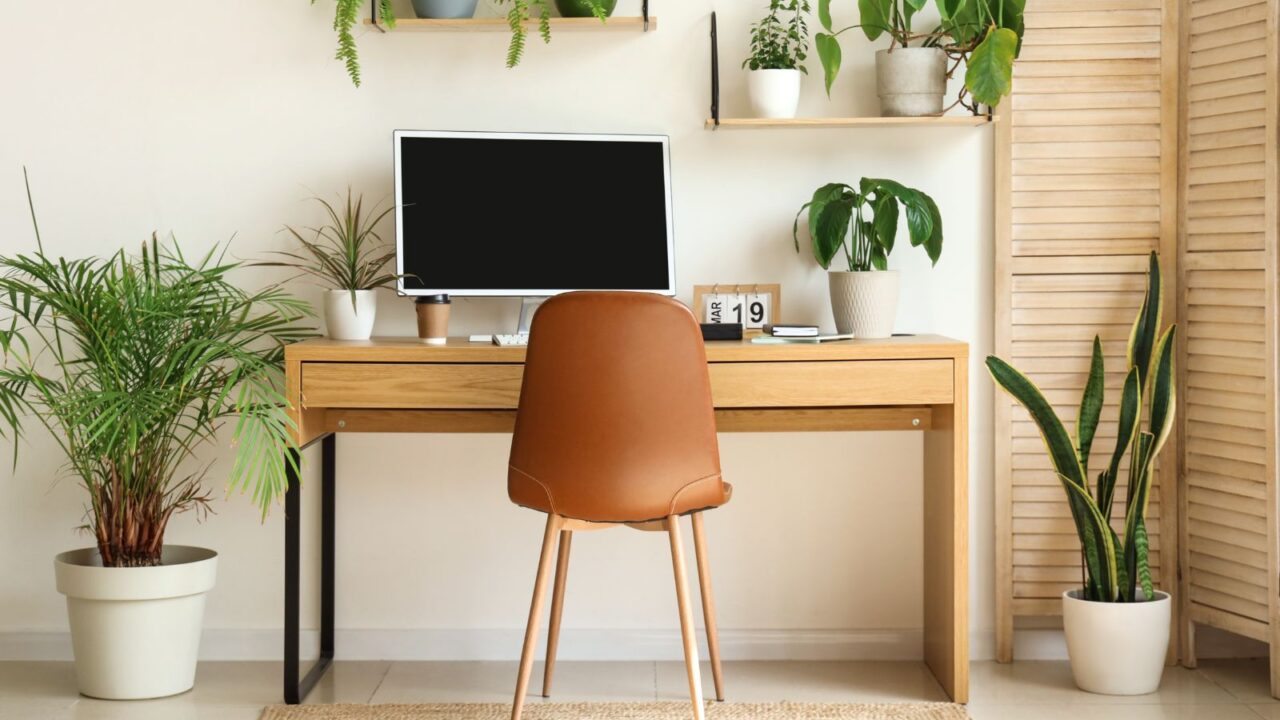
Nature
Plants aren’t just decorations, they’re mood boosters.
Add low-maintenance plants like succulents or a snake plant to your study room. These plants not only improve air quality but also create a calming, relaxing atmosphere.
If floor space is tight, consider hanging plants or a vertical garden to add greenery without sacrificing room. Integrating nature into your study area helps clear your mind and reduces stress, making it easier to stay productive and focused.

Cables
Messy cables can clutter up your study room and distract you from your work. Use cable management systems like clips, sleeves, or cord organizers to keep wires neatly tucked away.
Organizing cables not only improves the room’s appearance but also prevents tripping hazards and accidental disconnections.
A clean, organized workspace leads to better focus, and managing your cables ensures that your study room remains efficient and professional.
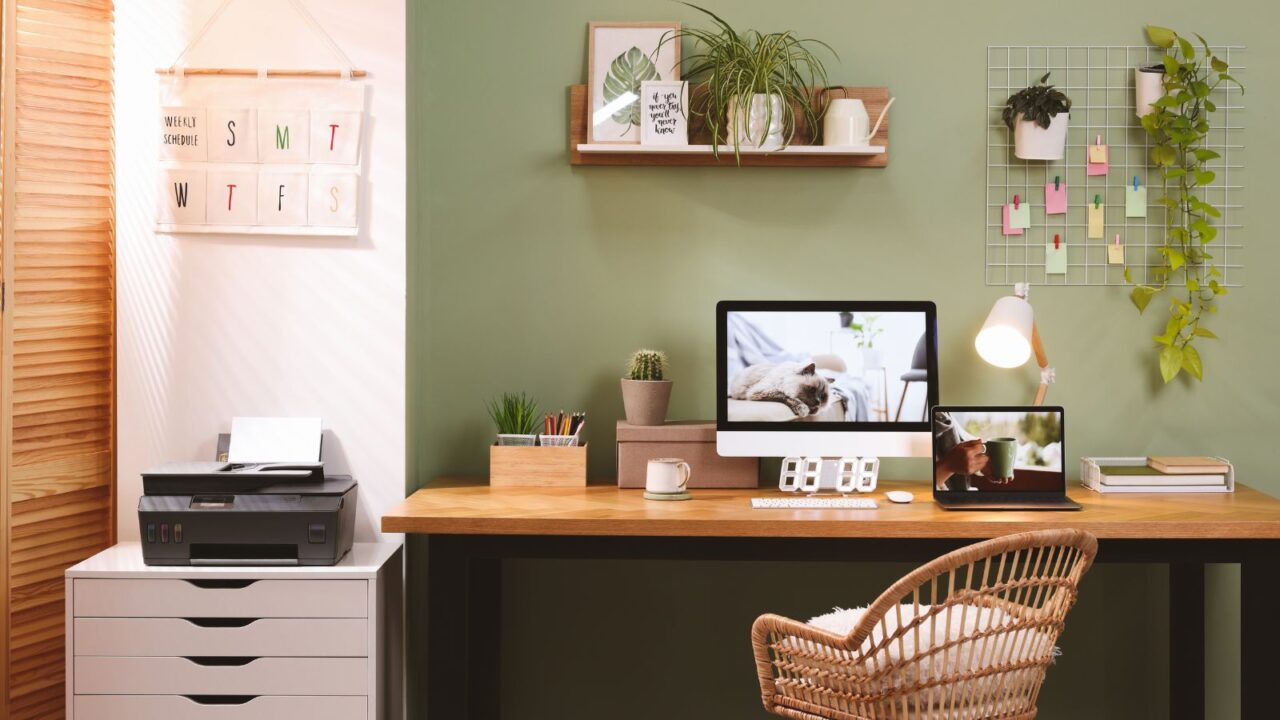
Color Scheme
Choose a color palette that promotes focus and creativity. Soft shades like blues, greens, and grays help foster concentration, while accents in colors like yellow or orange add energy.
A cohesive color scheme can tie the room together, making it feel more intentional and less chaotic. Try experimenting with these colors in your accessories like rugs, cushions, or curtains before committing to a paint job.
Color plays a huge role in mood, and choosing the right palette can elevate your productivity.
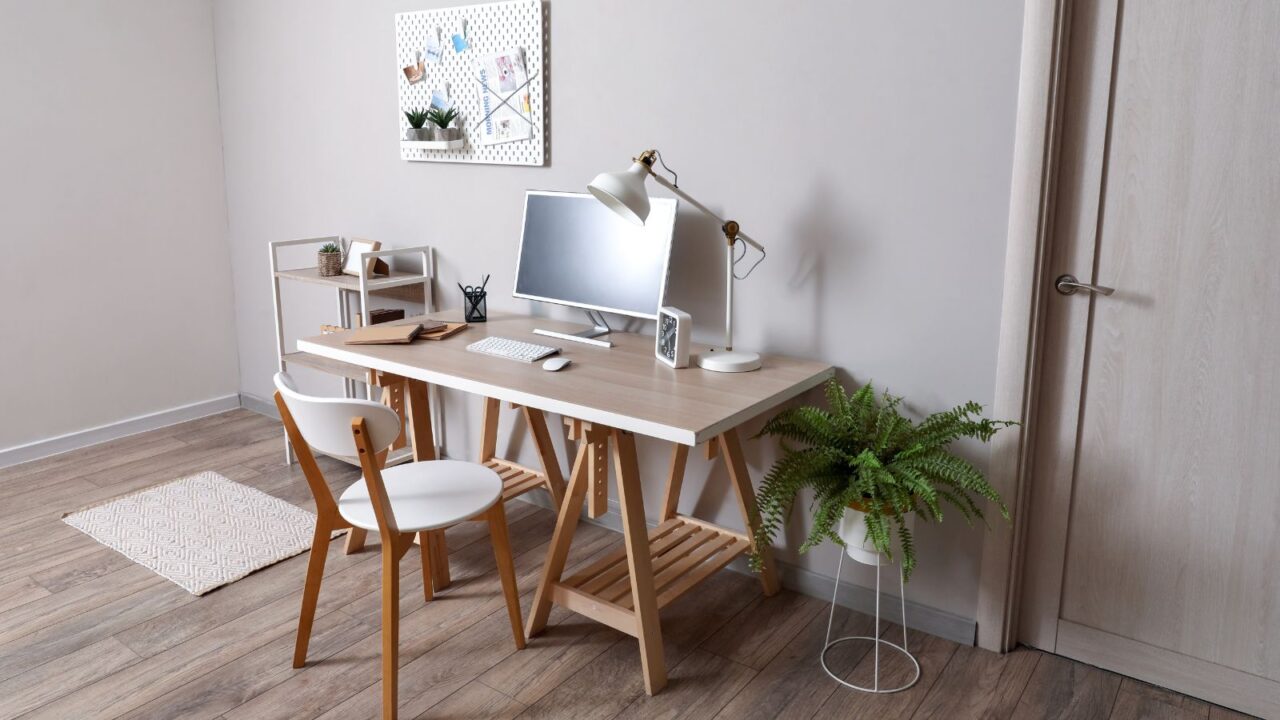
Minimalism
Less really is more when it comes to staying productive. A minimalist study room reduces distractions, helping you stay focused on what’s important.
Keep your desk clear of everything except the essentials, and store the rest away for a clean, uncluttered workspace. Make it a habit to declutter regularly, only keeping items that truly serve a purpose.
Minimalism isn’t about having less; it’s about making room for the work that matters most.
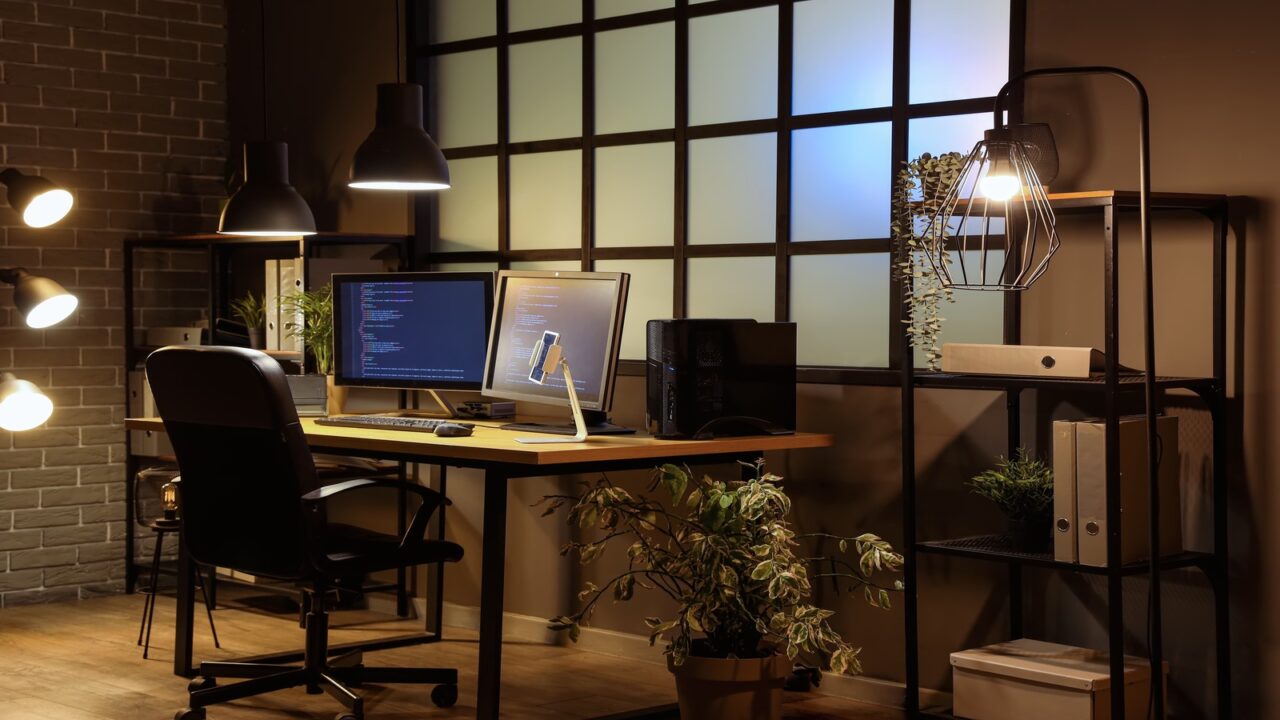
Dual Monitor Setup
If you frequently work on projects that require multiple applications, a dual monitor setup can significantly enhance productivity. It allows you to view more information simultaneously, saving time and reducing the need to switch between tabs.
Ensure your desk has enough space and consider adjustable monitor arms for optimal positioning. A dual setup streamlines multitasking, making complex tasks more manageable.
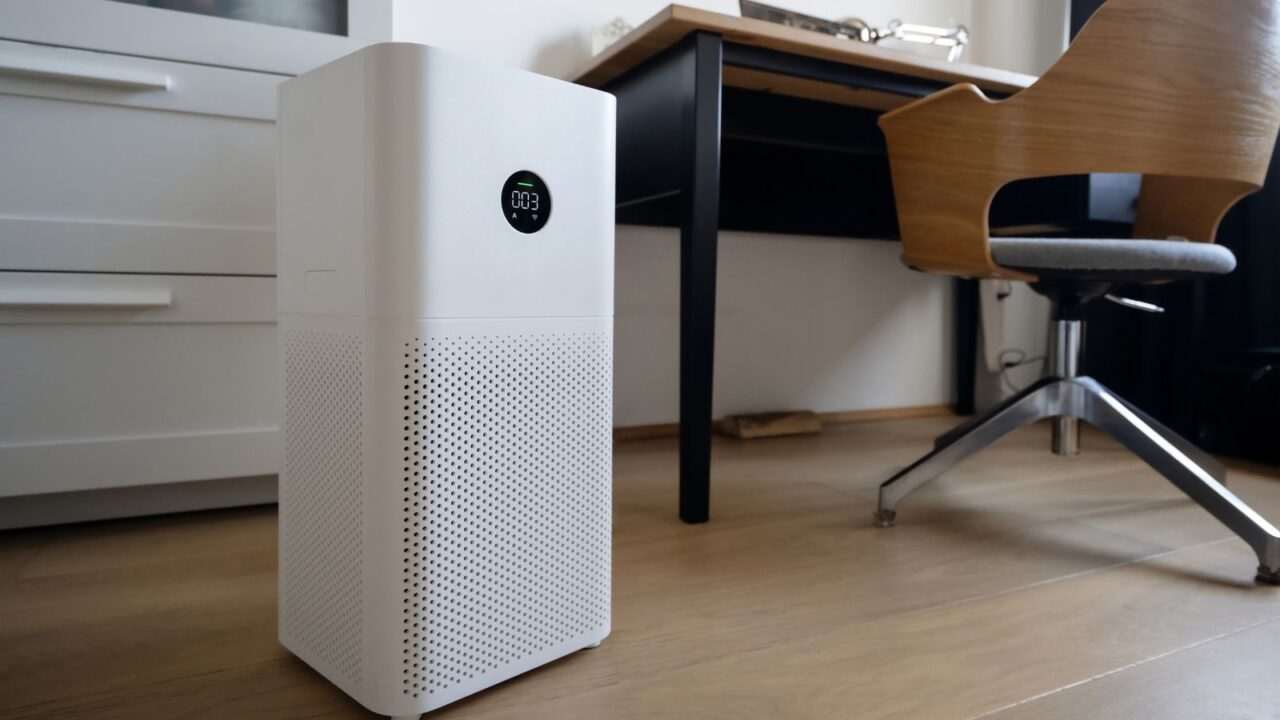
Air Quality
Fresh air is crucial for staying sharp and focused.
Use an air purifier to remove pollutants or allergens from the air, ensuring your study room stays fresh and breathable. Opening windows regularly or using indoor plants that purify the air can also help.
Prioritizing air quality not only improves your health but also enhances your ability to concentrate on tasks for longer periods of time. Good air circulation is the foundation of a productive environment.
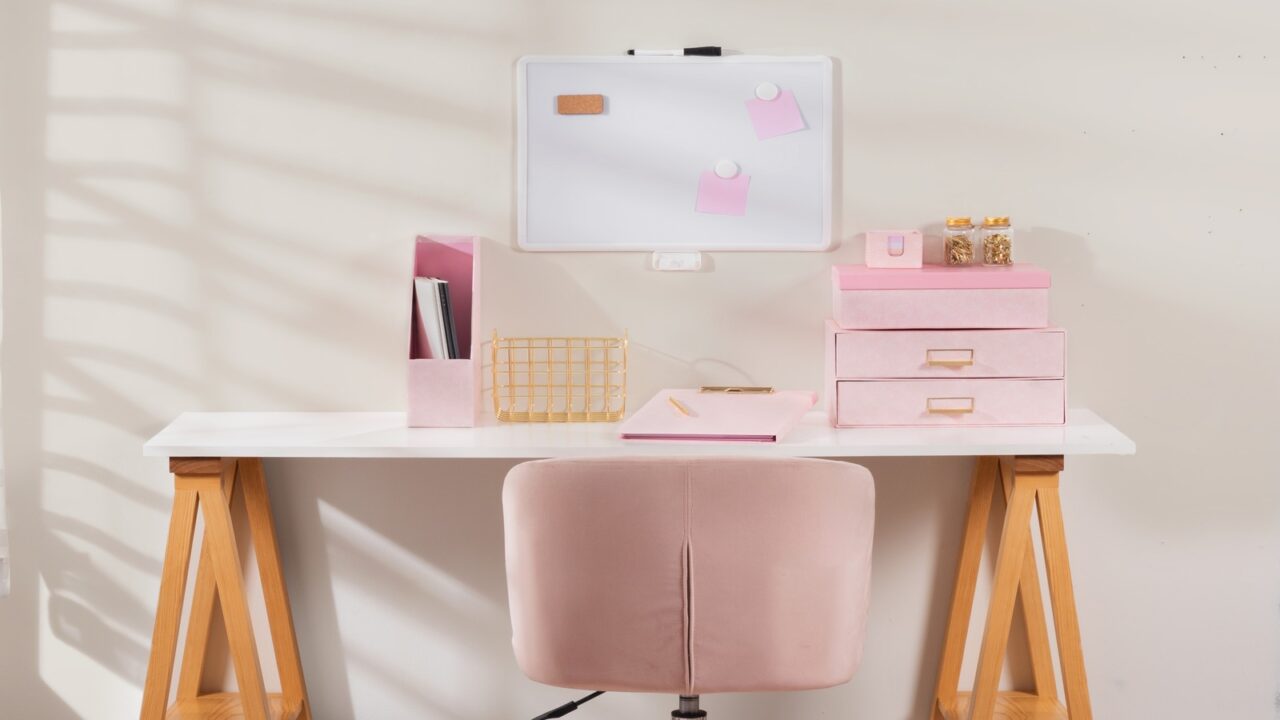
Whiteboard
A whiteboard or chalkboard is a practical addition to any study room, providing a space for brainstorming, to-do lists, or quick reminders.
It’s perfect for jotting down ideas on the fly and helps you stay organized with visual aids. You can also use it for mind mapping or outlining complex projects, keeping your thoughts visible and helping you stay on track.
This tool is especially useful for visual learners who benefit from seeing ideas laid out in front of them.
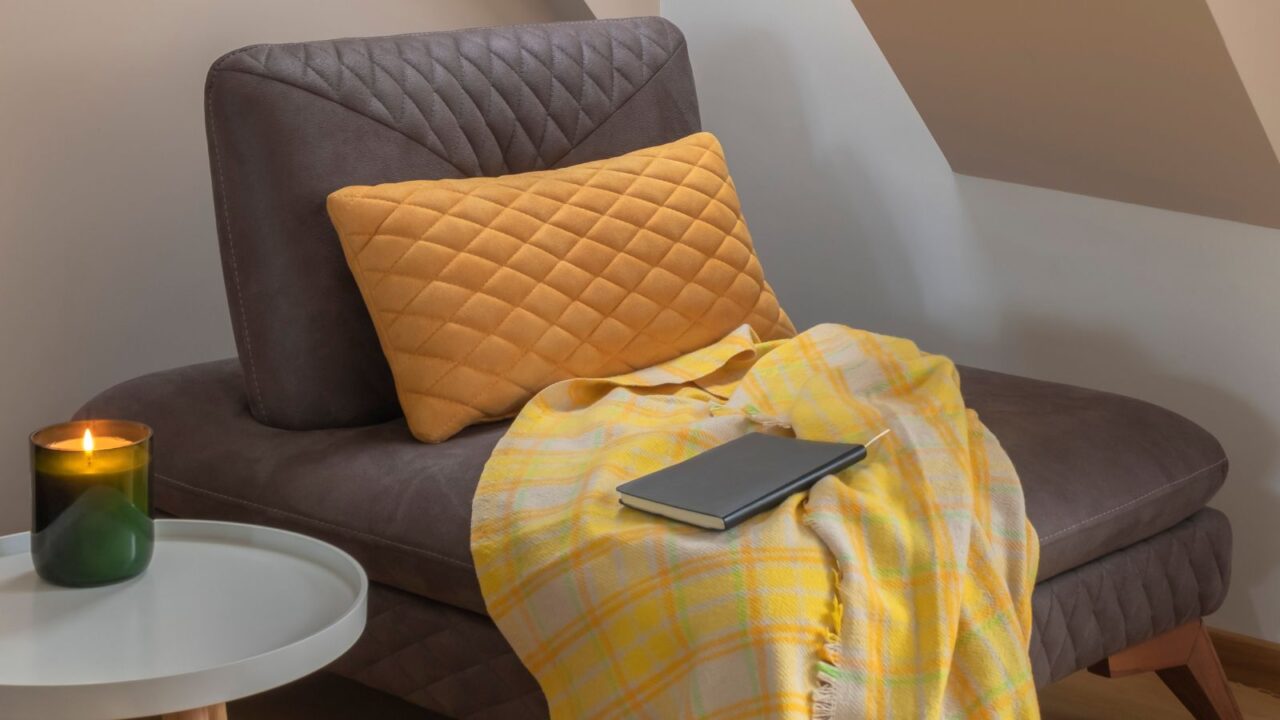
Textiles
Comfort matters when you’re trying to stay focused.
Add cozy rugs, throw blankets, or cushions to soften the space and make it more inviting. These textiles provide comfort and warmth, making your study room a place where you want to spend time.
Opt for materials and textures that feel good to you. The more comfortable you are, the better your focus will be.
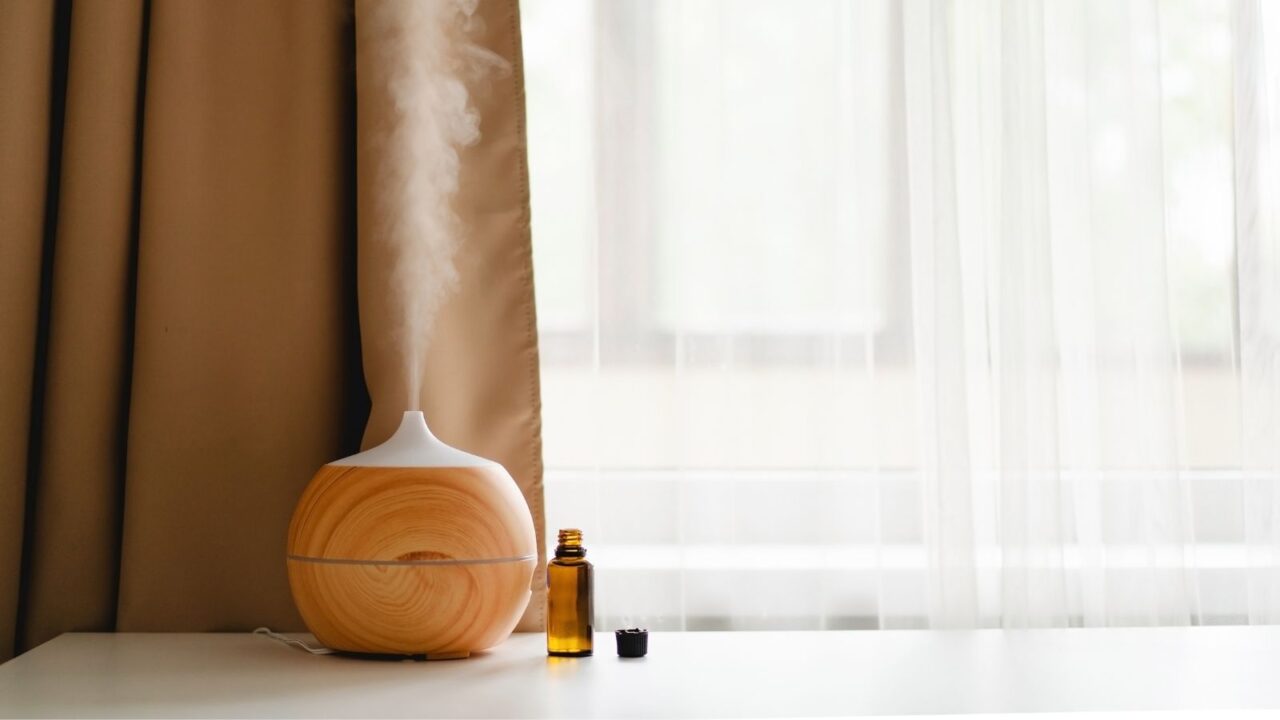
Scents
Your environment’s scent can dramatically influence your mood and focus.
Adding a diffuser with calming essential oils like lavender or invigorating citrus can help create a productive and peaceful atmosphere. Research shows that certain scents can reduce stress, sharpen focus, and even increase creativity.
This simple addition can transform your study space into a more pleasant and motivating environment, perfect for tackling lengthy projects or study sessions.
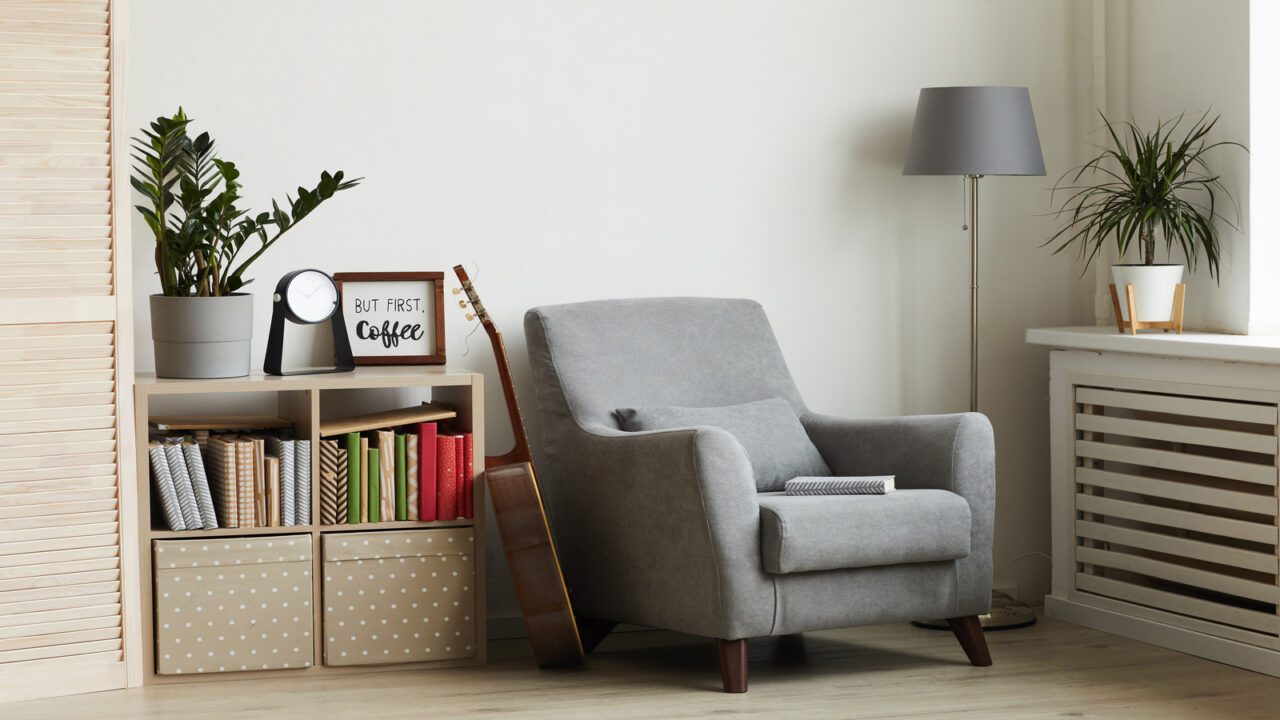
Reading Nook
Create a separate reading nook in your study room for moments when you need to step away from the desk.
A comfortable chair with good lighting and a small side table can make this space perfect for reading or taking a mental break. This small retreat within your study room provides a change of scenery without leaving the space, allowing you to reset and refresh without breaking your flow.
A cozy nook encourages relaxation and boosts productivity during study breaks. Learn how you can create a Cozy Reading Nook For Dad In the Living Room here.
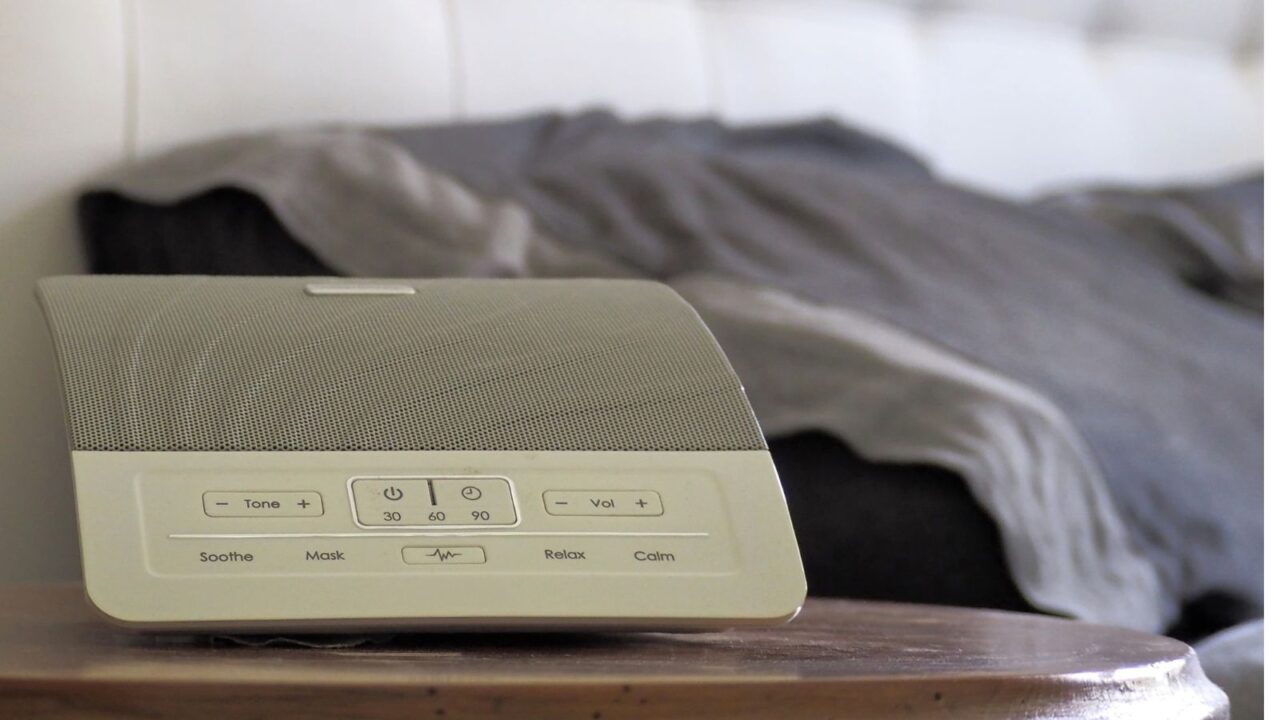
Acoustics
If your study room is in a noisy area, soundproofing can make a huge difference in your ability to concentrate.
Use soundproof curtains, acoustic panels, or noise-canceling materials to block out distractions. Even adding a white noise machine can help mask distracting sounds.
Quiet environments are essential for deep work and focus, and soundproofing ensures that external noises don’t disrupt your productivity. By creating a quiet space, you can maintain better focus and get more done in less time. Learn more ways to Make Your Bedroom Soundproof For Restful Sleep.